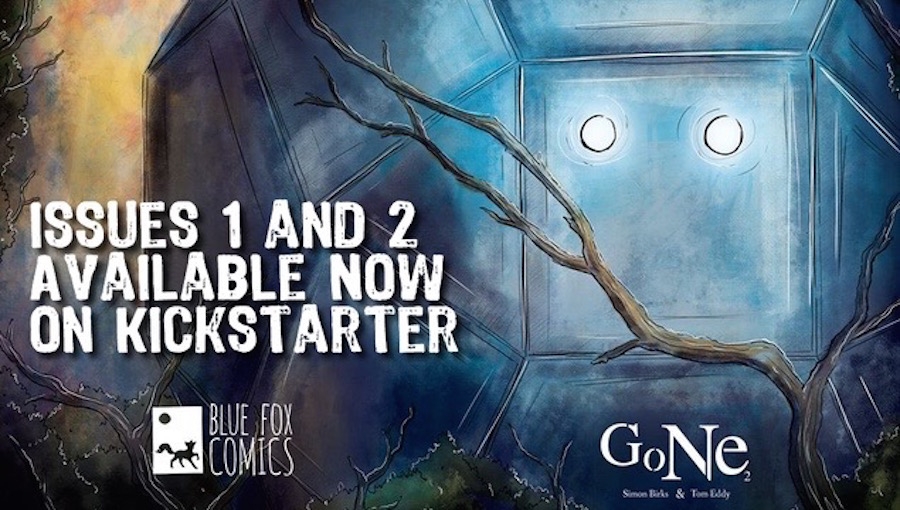Hello darkness, my old friend.
There’s a new genre making itself known in the gaming sphere at the moment that is being termed as “immersive storytelling” by…people who name such things. This genre is defined by typically nonviolent, but highly engaging, single-person narratives that leave the player alone in spaces that have been uninhabited by other people. Games like Gone Home, Tacoma, and Firewatch are leading the forefront of this new space, and I bring them up because I see a lot of similarity between them and Simon Birks and Tom Eddy’s Gone. With a protagonist whose presence is often dwarfed by the omnipresent heavy and mysterious atmosphere, the emptiness fights our little, robotic hero as ruthlessly as any antagonist, holding its secrets with a tenacity that engages the reader far more than you’d expect in such a simple presentation.
Superheroes tend to jump off the page at us, desperately welcoming us with garish uniforms and oversized action, but books like Gone I feel can be even more inviting, as they gently tease great stories hidden in between their covers. This is a world that’s entirely dependent on its atmosphere, and while I can’t say too much without giving away the great, shocking moments that each issue drops, I can say that – following the stream of consciousness of the protagonist, where it’s just the reader and this one character – when the shoes begin to drop, even though the events might not seem like much, if I were to write them here, the power of the narrative is such that the revelations are incredible in the space they inhabit. It’s the unique kind of pacing and tone that render everything with import.
The artwork is very simple, but not in an uncomplicated sort of way. Yeah, I know how that sounds, but the lack of definition allows the vastness of the spaceship to really hit home with us. It’s a defined and well-utilized choice, centering the action in the middle of nothingness, letting the character drive the plot completely. As stark as the tree in Waiting for Godot, the emptiness becomes a physical presence, the lack becoming oppressive in a way that any deviation becomes a unique opportunity for distraction. This is the feeling that was echoed when prisoners saw the aforementioned play; they understood instinctively that very feeling of needful distraction, and this work meets that level wonderfully.
This is a great work to sit with and experience in the silence of a calm night. With the great amount of distraction available to us at any moment in our lives, the singular experience like this is a rare and most welcome treat. Turn it all off and find the wonder in the smallest moments again.
Share the stories that move you.

